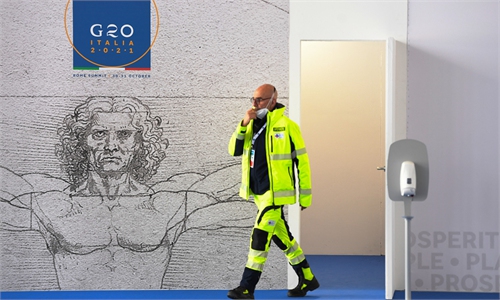Xi stresses solidarity, proposes vaccine initiative for developing countries at G20 as China’s vision to combat COVID-19
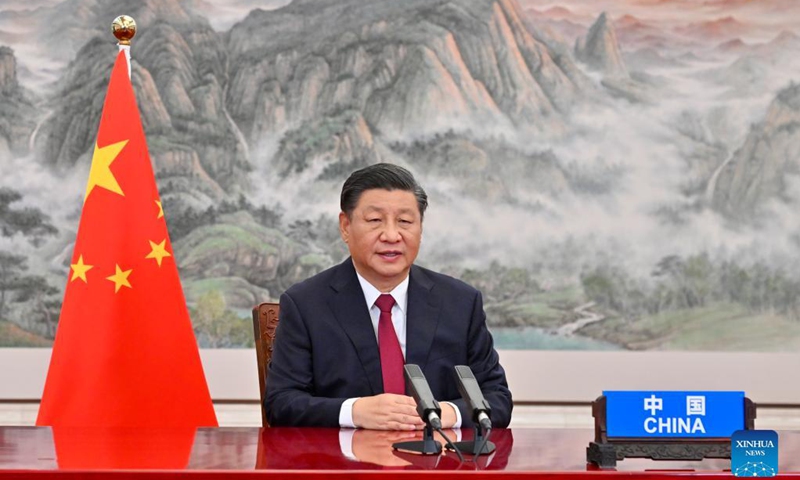
Chinese President Xi Jinping addresses the first session of the 16th Group of 20 (G20) Leaders' Summit via video link in Beijing, capital of China, Oct. 30, 2021.Photo:Xinhua
Chinese President Xi Jinping on Saturday stressed coordinated efforts to boost global economic recovery and proposed a six-point Global Vaccine Cooperation Action Initiative while addressing the 16th Group of 20 (G20) Leaders' Summit via video link on Saturday.
Experts said his speech focused on wellbeing and growth of developing countries and building a community with a shared future for mankind through supporting true multilateralism, and stabilizing global supply chain amid US' destruction to international order.
Solidarity and cooperation are the most powerful weapons to fight the pandemic. Stigmatization of the COVID-19 virus and politicization of tracing its origins run counter to the spirit of solidarity against the pandemic, Xi said, calling on the international community to work in concert to confront and defeat the pandemic by taking a science-based approach.
"We need to step up cooperation on prevention, control, diagnosis and treatment, and enhance preparedness for major public health emergencies," he said.
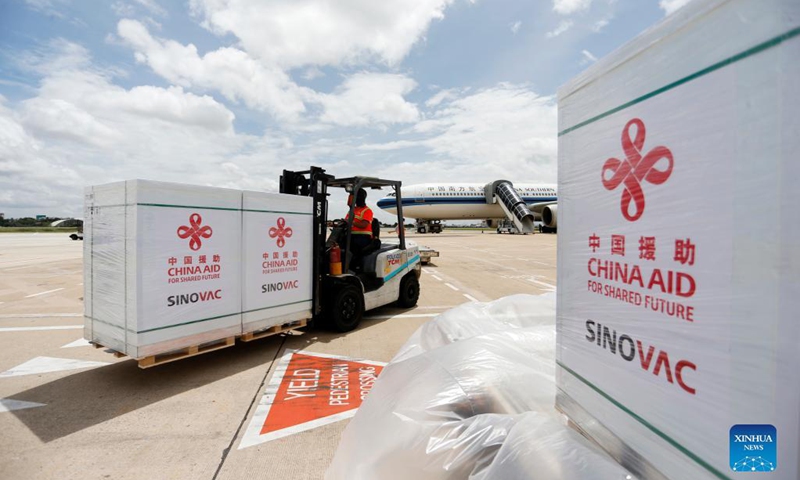
An airport worker transports packages of Sinovac COVID-19 vaccine at Phnom Penh International Airport in Phnom Penh, Cambodia, on Oct 14, 2021.Photo:Xinhua
Addressing the G20 Leaders' Summit, Xi proposed a six-point Global Vaccine Cooperation Action Initiative. As part of the Initiative, Xi proposed to strengthen vaccine R&D cooperation and support vaccine companies in conducting joint R&D and production with developing countries.
He called the G20 leaders to uphold equality and justice and provide more vaccines to developing countries to meet the global vaccination target for 2022 set by the WHO, support the World Trade Organization (WTO) in making an early decision on waiving intellectual property rights for COVID-19 vaccines, and encourage vaccine companies to transfer technology to developing countries.
Xi also said cross-border trade cooperation to ensure smooth trade in vaccines and related raw and auxiliary materials should be scaled up and that countries must treat different vaccines equally and advance mutual recognition of vaccines in accordance with the WHO's Emergency Use Listing.
China's proposals in global vaccine initiative and supply chains are significant in stabilizing global supply chain and safeguarding the international order centered by the UN against the backdrop that the US is trying so hard to coax its allies to play the "Taiwan card" and "China threat theory" in order to form a US-dominated "global pattern," which is actually small cliques purely serving the US' selfish interests, Wang Yiwei, director of the institute of international affairs at the Renmin University of China, told the Global Times.
To reduce their economic reliance on China, the US-led West has been increasingly supporting India and the island of Taiwan, both politically and economically, hoping they could replace China's status as the world's factory, but we know it's impossible, Wang said.
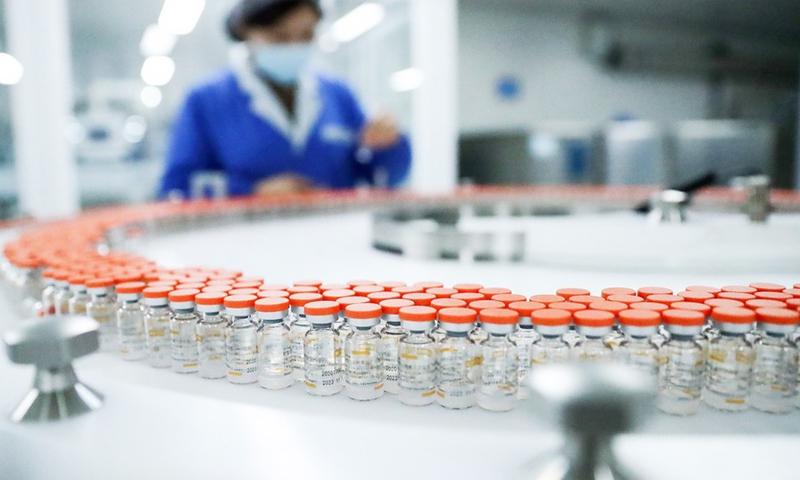
A staff member checks tags on vials of COVID-19 vaccine at a packing line of Sinovac Life Sciences Co., Ltd. in Beijing, capital of China, Dec 23, 2020.Photo:Xinhua
One of the major highlights of China's proposals was the six-point global vaccine initiative, which was very detailed and feasible, reflecting China's help to developing countries is development-orientated as China is not only providing vaccine products, but helping developing countries to possess the ability to produce and transport vaccines, Wang said, noting that it formed a sharp contrast of US-led West's capital-orientated selfish moves.
At the early stage of the pandemic, Xi called for COVID-19 vaccines to be made a global public good.
At Saturday's meeting, Xi noted that China has provided over 1.6 billion doses of vaccines to more than 100 countries and international organizations, and will provide over 2 billion doses to the world in the course of this year. China is conducting joint vaccine production with 16 countries, with an initial capacity of 700 million doses per year.
To address the complex and far-reaching impact of COVID-19 unleashed on the world economy, Xi said major economies should adopt responsible macroeconomic policies, prevent measures taken for themselves from entailing rising inflation, exchange rate fluctuations or mounting debts, avoid negative spillover on developing countries, and ensure the sound operation of the international economic and financial system.
Xi said that forming exclusive blocs or even drawing ideological lines will only cause division and create more obstacles, and do harm to scientific and technological innovation.
In his speech to G20 leaders, Xi announced China's decision to apply to join the Digital Economy Partnership Agreement. China attaches great importance to international cooperation on digital economy and stands ready to work with all parties for the healthy and orderly development of digital economy, Xi noted.
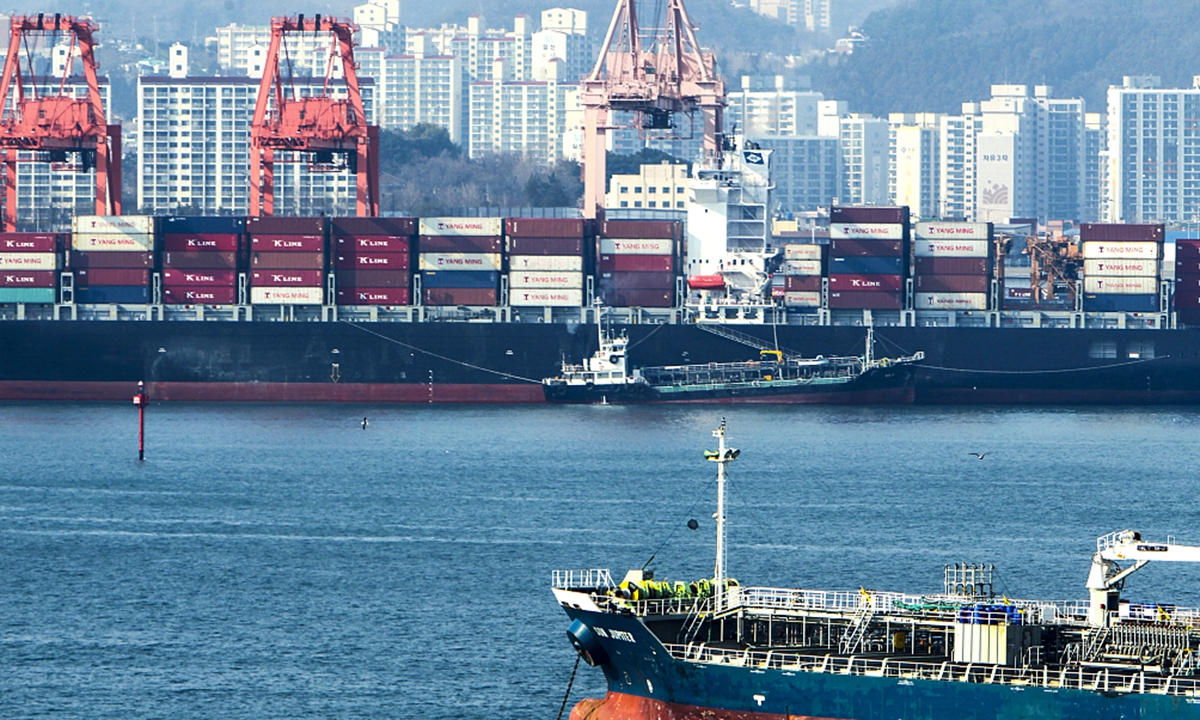
Photo:VCG
Cao Heping, an economist from Peking University, told the Global Times that Xi's proposal to hold an international forum to discuss resilient and stable industrial and supply chains and objection to small cliques in technology development was essential to the post-COVID recovery of the global economy.
Given the impact of the pandemic, the US and other developed economies in the world that are in an advantageous position for economic development should shoulder greater responsibilities, adopt responsible macroeconomic policies, maintain the stability of the international financial market, and share the benefits of economic development with other economies, Cao said.
Major economies should work together to jointly advance development of science and technology. The US' arbitrary trade war and tech war against China have been proved endangering and delaying the development of scientific and technological progress, Cao said.
To assist the developing world to tackle the COVID-19 crisis, experts with Shanghai Institute for International Studies (SIIS) said in a newly released report that the US and China, one as the dominant financial power and the other as the largest official creditor, share common interests and responsibilities in enhancing sovereign debt governance and fostering global sustainable development under the G20.
Experts suggested in the report that China and the US can work together in exploring truly multilateral and public-private partnership approaches of dealing with the unsustainable debts, based on a case-by-case approach, ensuring equitable and fair burden-sharing among all categories of creditors.
China and the US should put politics right and prioritize cooperation on sovereign debt treatment and sustainable development. The US should stop scapegoating China for the sovereign debt of developing countries by hyping the theory of "debt trap." Although differences remain in priorities and approaches of development financing between China and the US, such a gap should not serve as an excuse for finger-pointing, experts with the SIIS said in the report.
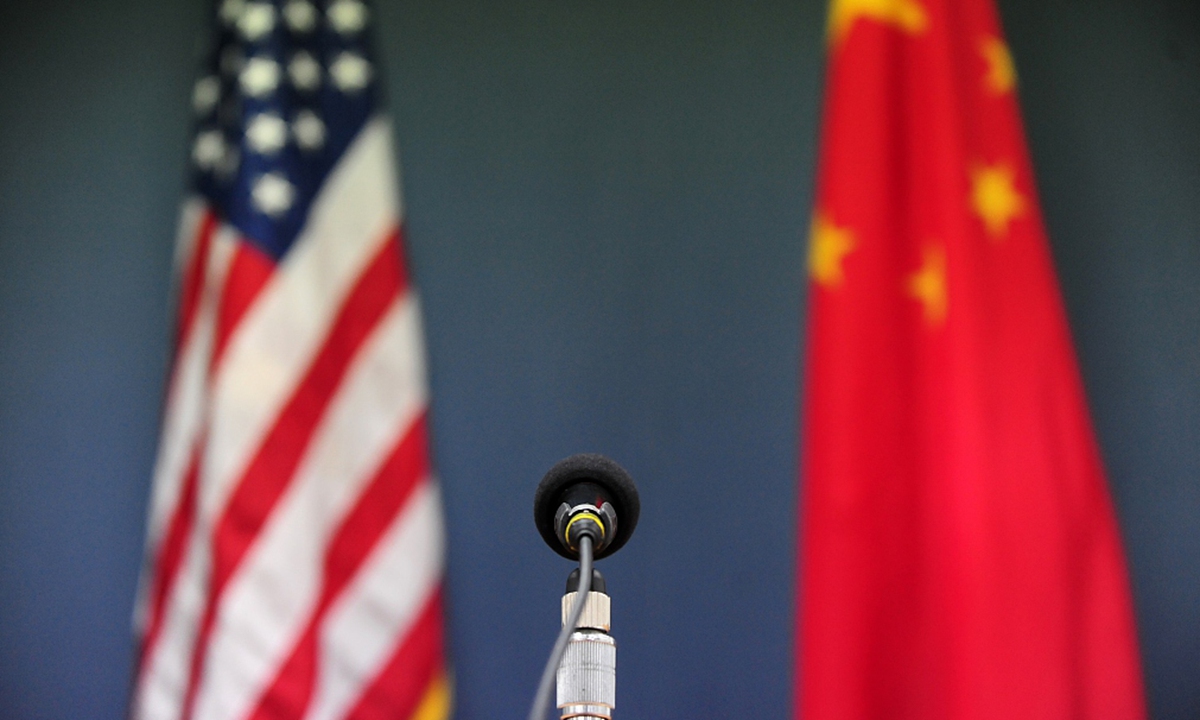
Photo:VCG
Xi also called on G20 members to safeguard the multilateral trading system with the World Trade Organization at its core and build an open world economy. At the same time, Xi said G20 members should take a long-term perspective, improve the global economic governance system and rules, and make up for the relevant governance deficit.
On climate change, Xi said in his video speech that developed countries need to lead by example on emissions reduction, deliver on their commitments on climate financing, and provide technology, capacity-building and other support for developing countries, which is critically important for the success of the upcoming COP26.
Global Times

